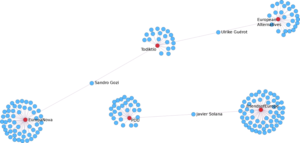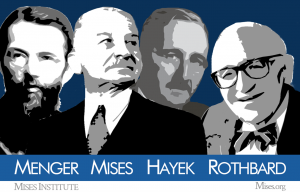The Brexit vote has sent a chilling message across Europe: This European Union can fall apart. The growing strength of right-wing populism and Euroscepticism is frequently considered to result from the neoliberal turn of the EU and from the relative weakness of pro-European progressive forces. In response to increasing calls for partial or complete disintegration, a number of pro-European think tanks and online platforms have been founded or significantly stepped up their activities in recent years. Did they manage to develop and disseminate new ideas to advance European integration?

In November 2016, EU commissioner Pierre Moscovici called on several countries to use fiscal leeway to stimulate the European economy. While Northern European countries thrive, many Southern European countries continue to suffer from the impact of severe austerity, low or no growth, and a lack of future perspective. Northern surplus and Southern misery turns the image of Northern Saints and Southern Sinners used to describe the status of public finance before the global financial crisis upside down: Northern foreign account surplus coincides with severe unemployment and still burgeoning debt in Southern European countries. Europe’s combined and highly uneven development has undermined the faith in the viability of the “Schäuble system”. But Germany’s chief financial officer does not relent: In response to Moscovici’s call for European rather than national priorities, Wolfgang Schäuble insists on continuing consolidation and structural reforms. The majority of less fortunate citizens of Europe increasingly regard this as a road that leads nowhere or right toward a steep cliff.
While mainstream European planning documents like the five presidents report or the Spinelli group do not offer much beyond the prevailing orthodoxy of European integration, new pro-European civil society think tanks like European Alternatives, EuropaNova, Project for a Democratic Union, Todiktio or the older group Friends of Europe have been struggling to supply new thinking in the realm of European economic, political, social and cultural thought. New conceptual ideas relate to expanded notions of European citizenship, a public service re-orientation of Europe’s economy, and moves toward a transnational European democracy and public sphere.
The strongest example of new thinking can be found around issues of citizenship. The presently limited notion of European citizenship is inextricably linked to national citizenship of member states. It must be considered increasingly inadequate to cope with the circumstances of Europe’s migrant and refugee population. Think tanks advocate a move towards greater inclusion, resident citizenship, needed to equalize legal rights and political duties across Europe’s changing demography. Possibly a result of strong headwinds in this grim age of permanent austerity, demands for social citizenship across Europe are only voiced timidly in relation to minimum standards like social security. At the same time new notions of a European public service economy provide striking contrast to the present focus on growth and competitiveness. Think tanks request to fight against austerity and unemployment. They call for the rejection of corporate economic power in general, and the currently excessive power of the financial sector in particular. It is clearly perceived that democracy cannot be advanced under the prevailing conditions of neoliberal economic policy orientation. But what kind of alternative economy and economic policy are proposed remains unclear. There appears to be a lack of communication between civil society groups, heterodox economists and the range of subordinated economic interest groups (trade unions, not for profit associations, movements of unemployed etc.).
Civil society think tanks at the same time are preparing to form a strong part of the European democracy movement. Compared to the mechanical discourse of European elites in response to the lingering legitimacy crisis, pro-European think tanks emphasize a renewal of democracy from below. Whereas official reform efforts continue to emphasize the recalibration of the relation between European and national levels, pro-European think tanks reclaim democracy from the elites. One way of doing so relates to stage-manage a European public sphere in real time. Impressive projects link the young generation in particular across borders by way of cultural interventions. The practical energy has been stronger than the conceptual effort in this area, surprisingly. Pro-European think tanks argue in favor of strengthening the European public sphere from below (in struggles), from above (by way of demands on the European institutions) and through improved integration of civil society organizations. Arguably missing are demands for common public media, for example.
There appears not to be a close link of pro-European think tanks and the range of European online platforms, generally speaking, but some of the new ideas emanating from the think tanks do reverberate in the online discussions. Contributions to platforms sometimes seem to even go beyond the conceptual effort of think tanks. A notable example is a call for reforms of the European charter of fundamental rights that adds perspective to the notion of expanded European citizenship. The combined effort of pro-European think tanks and debating platforms can be considered a promising start of a new integration discourse, but organizations remain feeble due to a lack of independent funding and integration. In order to thrive, the new pro-European movement still needs a more solid organization basis. But it does not lack spirit and dedication of a generation of Europeans that does not want to return to the past, and is eager to continuously cut across borders in a spirit of human and social equality.


